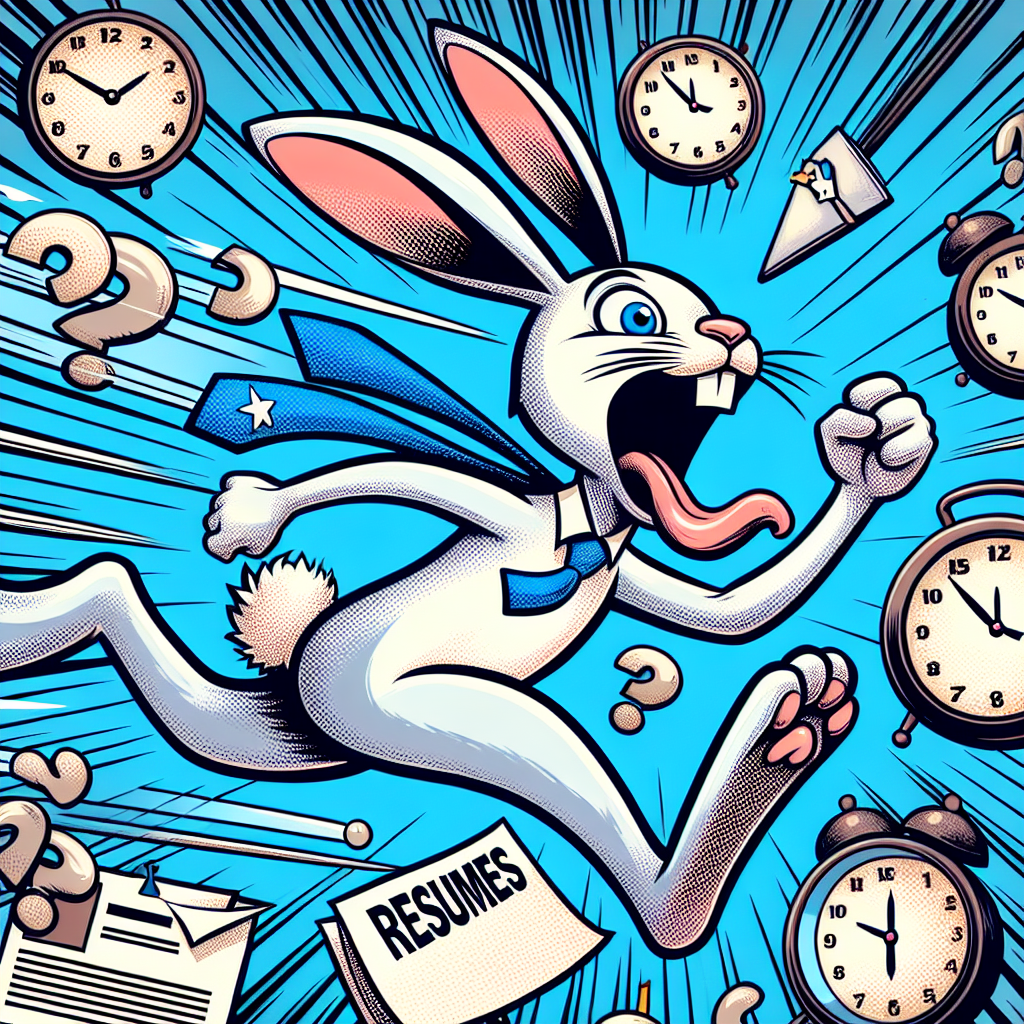How Long Does a Background Check Usually Take?
Introduction
In today’s fast-paced job market, knowing the background check duration can make or break your hiring process. Think of it as waiting for your pizza delivery nobody likes to wait longer than necessary, especially when you’re hungry for new talent!
Background checks are essential for ensuring that candidates are who they say they are. Whether it’s an employment background check or a criminal record check, understanding the typical wait for background checks can help streamline your hiring process. Plus, being informed helps set realistic expectations for both employers and candidates alike.
In this guide, we’ll explore various aspects of background screening from average times to factors that can affect speed. We’ll even touch on expedited processes for those who just can’t wait! So let’s get started on this journey through the timeline of background checks.

Understanding Background Checks
So, what exactly are background checks? Think of them as the detective work of the hiring process. Employers want to ensure they are bringing the right people into their organizations, and background checks help them do just that. They can reveal everything from an applicant’s criminal history to their employment record, giving employers a comprehensive view of who they are about to hire.
When asking how long does a background check take, it’s essential to understand the different types of checks available. The most common types include:
- Criminal Background Checks: These delve into an individual’s criminal history, revealing any past convictions or arrests. The criminal background check length can vary based on jurisdiction and the depth of the search.
- Employment Background Checks: This type verifies an applicant’s work history, including job titles, dates of employment, and reasons for leaving. The employment background check time can fluctuate depending on how quickly previous employers respond.
- Education Verification: This confirms an applicant’s educational qualifications. Depending on the institution, this can either be a quick process or one that takes longer than anticipated.
- Reference Checks: Speaking with former supervisors or colleagues can provide insight into a candidate’s work ethic and character. The standard length of a professional reference check can range significantly based on availability and cooperation from references.
The duration for these checks isn’t set in stone; it varies widely based on several factors. For instance, if you’re dealing with a high-volume hiring scenario, you might find that your screening agency is swamped with requests leading to longer wait times. On the flip side, if you opt for an expedited background check process, you may see results much faster.
Quick Tip: To ensure you get results as swiftly as possible, provide complete information during the application process. Missing details can lead to delays in processing time!
The key takeaway here is that understanding what goes into a background check will help set realistic expectations regarding its duration. Whether you’re navigating through police background check processing time or trying to figure out how soon results for a background screening are available, knowing what type of checks are involved will guide your timeline effectively.
Factors Affecting Background Check Speed
When you find yourself wondering how long does a background check take, it’s important to consider the various factors that can influence the speed of the process. Some elements are within your control, while others depend on external circumstances. Let’s break it down!
- Type of background check requested: The specific type of background check can significantly impact its duration. For instance, a simple employment verification may take less time than a comprehensive FBI background check.
- Completeness of applicant information: An applicant who submits all necessary documents and accurate information will typically see faster processing times. Missing details can lead to delays as screening agencies dig for what they need.
- Volume of requests at the screening agency: Just like your favorite coffee shop during morning rush hour, background screening agencies experience peak times when requests flood in. During these busy periods, you might find yourself waiting longer for results.
- State-specific regulations and processes: Different states have varying laws and processes that can affect the time taken for checks. For example, some states require additional steps or have specific guidelines that extend the overall timeframe.
The combination of these factors creates a unique cocktail of speed (or lack thereof) in your background check experience. Understanding these elements can help you set realistic expectations and prepare accordingly.
Key Takeaway: To optimize the speed of your background checks, ensure that applicants provide complete and accurate information, consider the type of checks being performed, and be aware of peak request times at screening agencies.

Average Time for Different Types of Background Checks
When it comes to understanding how long does a background check take, it’s essential to recognize that not all checks are created equal. The duration can vary significantly depending on the type of background check being conducted. Here’s a breakdown of the average times you can expect for various checks:
- Employment Background Check Time: Typically, this takes about 1 to 5 business days. This includes verification of employment history, education, and sometimes even social media checks.
- Criminal Background Check Length: Generally ranges from 1 to 3 business days, depending on the depth of the search and the jurisdictions involved.
- Police Background Check Processing Time: This can take anywhere from a few hours to several weeks, largely influenced by local police department workloads and procedures.
- FBI Background Check Turnaround Time: Expect around 3 to 5 business days, although it might stretch longer if there are any complications or additional requests for information.
- Federal Background Check Duration: For federal positions or security clearances, this could take anywhere from 30 days to several months, depending on the complexity of the investigation and required security clearance level.
Key Takeaway: The average time for background checks can greatly vary based on type and thoroughness. Knowing these timelines helps streamline your hiring process!
Expedited Background Check Process
When it comes to hiring, time is often of the essence. So, how long does a background check take when you need it done in a hurry? Enter the expedited background check process your express lane to getting those crucial results faster than a caffeine-fueled rabbit!
In a world where talent is snatched up quicker than the latest smartphone, understanding the options for speeding up your background screening timeframe can be a game changer. Let’s break it down:
- How fast are background checks completed?
Typically, expedited services can cut down the background check duration from weeks to just a few days or even hours! Think of it as fast-tracking your ticket at an amusement park no one wants to wait in line when there’s fun to be had. - Typical wait for background checks with expedited services
While standard checks might take anywhere from 3 to 10 days, expedited options usually promise results within 24-48 hours. Just imagine telling your candidate they’re hired before they even finish their celebratory coffee! - Rapid criminal record check completion options
Many screening agencies offer specialized packages that prioritize criminal record checks. These services often utilize advanced technology and databases to pull information quickly and efficiently. It’s like having a superpower in your hiring toolkit!
Pro Tip: Always confirm with your screening provider about their specific turnaround times for expedited services. Not all agencies are created equal, and knowing what affects the duration of a security clearance investigation can save you from unexpected delays.
However, keep in mind that while speed is essential, accuracy should never be compromised. Rushing through the process could lead to oversights or errors that might come back to haunt you later on. So, balance speed with thoroughness like a tightrope walker on their way to victory!
If you’re navigating an urgent hiring process timeline with background checks looming over your head, leveraging expedited services could be your golden ticket. Remember: quick employment screening time doesn’t have to mean cutting corners; it’s about working smarter not harder.

The Hiring Process Timeline with Background Checks
When it comes to the hiring process, timing is everything. Employers often find themselves on a race against the clock, trying to fill positions while ensuring they make informed decisions. So, how long does a background check take, and how does it fit into the overall hiring timeline? Let’s break it down.
Job Application Background Check Period Overview
The job application background check period is typically one of the first steps after an offer is made. On average, this can take anywhere from 1 to 5 business days, depending on the thoroughness of the check and the responsiveness of external sources. This means that from the moment you hit ‘send’ on that job offer, you might be waiting a bit before you get those shiny results back.
Standard Length of a Professional Reference Check
Professional reference checks are another crucial piece of the puzzle. These checks usually take about 2 to 7 business days. The duration may vary based on how quickly references respond and how many references you decide to contact. Remember, patience is a virtue especially when your candidate’s future hangs in the balance!
Time Taken for Drug Testing Results in Employment Screenings
Drug testing can add another layer to your hiring process timeline. Typically, results can come back within 24 hours to 1 week. However, if there are complications or if further testing is required (hello, second chance!), this could stretch out longer than anticipated.
In conclusion, understanding these timelines helps HR managers and recruiters set realistic expectations for candidates while streamlining their own processes. After all, nobody likes waiting around especially when finding top talent feels like hunting for unicorns!
Common Delays in Background Checks and Their Reasons
So, you’ve submitted your job application and are eagerly waiting for the results of your background check. But what happens when the clock ticks longer than expected? Understanding the common delays in background checks can save you from unnecessary anxiety and help you navigate the hiring process timeline with ease.
Did you know? The average time for background checks can vary significantly based on several factors, and delays can be quite common!
1. Incomplete Applications or Discrepancies in Information
First up, let’s talk about the dreaded paperwork! If your application is missing key information or has discrepancies (like a typo in your name), it can lead to delays. Screening agencies may have to pause processing until they clarify these details, which can feel like waiting for a pot of water to boil.
2. Inefficiencies at the Screening Agency Level
Sometimes, it’s not you it’s them! If a screening agency is overwhelmed with requests or has outdated systems, they might not be able to process checks as quickly as they should. Think of it like being at a restaurant where the waiter is juggling too many tables; service just slows down.
3. Court Record Access Issues
Court records aren’t always easily accessible. Some jurisdictions have specific rules about how records can be obtained, which could slow down the process if additional steps are needed to retrieve them. It’s like trying to find a needle in a haystack only this haystack has legal red tape!
4. Delays in Responses from References or Employers
If your background check involves contacting previous employers or references, any delay on their end can affect your results. Sometimes people take their sweet time responding to inquiries, leaving you stuck in limbo while they decide whether to pick up the phone.
In summary, understanding these common delays in background checks helps set realistic expectations about how long does a background check take. Being proactive like ensuring all your application details are correct can help minimize potential hiccups along the way!

Efficient Ways to Speed Up the Background Check Process
So, you’re knee-deep in the hiring process, and the clock is ticking. You might be wondering, how long does a background check take? The truth is, it can feel like watching paint dry. But fear not! There are efficient ways to speed up the background check process without sacrificing thoroughness.
1. Choose the Right Background Check Service
Not all background check services are created equal. Some are faster than others, so do your homework! Look for providers that offer an expedited background check process. Trustania, for example, leverages technology to streamline their checks and deliver results quicker.
2. Ensure Complete and Accurate Information
A little diligence upfront can save you a lot of time later. Make sure candidates fill out their applications completely and accurately. Missing information can lead to delays as the screening agency scrambles to track down what’s needed.
3. Utilize Online Tools
In today’s digital age, there’s no reason not to use online tools for background checks. Many services offer instant results for certain types of checks like criminal records or employment history cutting down on the typical wait for background checks significantly.
4. Communicate with Candidates
Keep candidates in the loop! Let them know they might need to provide additional documentation or clarify details during the process. This proactive approach can help avoid unnecessary delays caused by back-and-forth communication.
5. Prioritize Checks Based on Job Requirements
If you’re hiring for a role that requires extensive security clearance, focus on those checks first. For less critical roles, you can opt for quicker screenings that still meet your standards without bogging down your hiring timeline.
6. Monitor Screening Progress Regularly
A little oversight goes a long way! Regularly check in with your screening agency to monitor progress and address any issues as they arise. This proactive approach can help mitigate any potential delays before they become problems.
The average time for background checks can vary widely based on several factors; however, using these efficient strategies can help streamline the process significantly.
In conclusion, while it may seem daunting at first glance, speeding up your background check process doesn’t have to be a Herculean task. With these strategies in place, you’ll be well on your way to getting those results quicker than you can say “how long does a federal background check take?” Now go forth and hire with confidence!
Industry Standards on Verification Checks Duration for Hiring Processes
When it comes to hiring, timing is everything. Employers often find themselves in a race against the clock, trying to fill positions while ensuring they make informed decisions through background checks. But how long does a background check take? The industry has established certain standards that can help set expectations during the hiring process.
On average, the background check duration can vary significantly based on several factors. Here’s a breakdown of what you can typically expect:
- Employment Background Checks: These usually take between 1 to 5 days, depending on the depth of the check and the information required.
- Criminal Background Checks: The length can range from 1 day to several weeks, particularly if multiple jurisdictions are involved.
- Reference Checks: These checks typically take around 2 to 3 days, but delays can occur if references are slow to respond.
- Drug Testing Results: Generally, employers can expect results within 24 to 72 hours.
- Federal Background Checks: For those requiring an FBI background check, the turnaround time may extend up to 30 days, especially if there are complications or additional verifications needed.
The speed of these processes hinges on several variables, including:
- The thoroughness of the information provided by applicants.
- The efficiency of the screening agency handling the checks.
- The specific regulations in place in different states or countries that might affect processing times.
Key Takeaway: Understanding these industry standards helps HR managers and recruiters set realistic timelines for their hiring processes and manage candidate expectations effectively.
If you’re looking for ways to expedite your screening process, consider leveraging technology-driven solutions like those offered by Trustania. Their platform is designed to streamline background checks, ensuring you get results faster without sacrificing accuracy or compliance. Remember, while speed is important, thoroughness is key after all, you wouldn’t want to rush into hiring someone with a questionable background!
Conclusion
So, how long does a background check take? The answer is as varied as the types of checks themselves! From the quick employment screening time that can be completed in just a few hours to the more in-depth processes like an FBI background check, which might stretch into weeks, it all depends on several factors.
Understanding the background check duration is crucial for both employers and candidates alike. For HR managers, this knowledge helps in planning the hiring process timeline effectively. For job seekers, it sets realistic expectations during their application journey.
Key Takeaway: To speed up the process, ensure that all applicant information is complete and accurate. This can significantly reduce delays caused by discrepancies or missing data.
Moreover, with modern technology and expedited services available today, many organizations are finding ways to cut down on the typical wait for background checks. Companies like Trustania are leading the charge by providing faster turnaround times without sacrificing accuracy or thoroughness.
If you’re navigating through hiring processes or simply curious about how soon results for a background screening are available, remember that being proactive can make all the difference. Whether you’re looking to streamline your hiring practices or simply want to understand what affects the duration of a security clearance investigation, staying informed will help you stay ahead in this competitive landscape.

